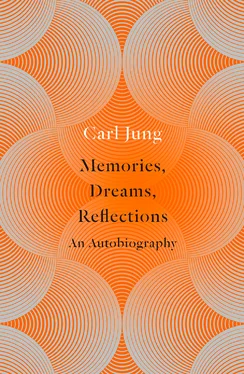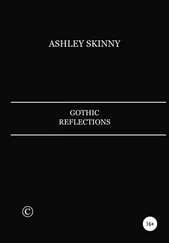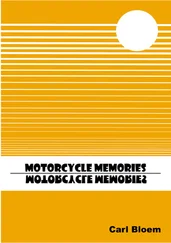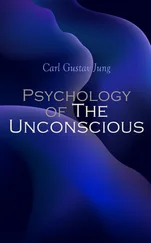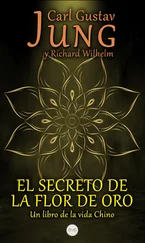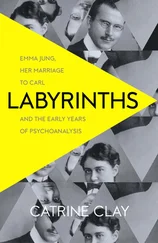Because they are so closely akin to us and share our unknowingness, I loved all warm-blooded animals, who have souls like ourselves and with whom, so I thought, we have an instinctive understanding. We experience joy and sorrow, love and hate, hunger and thirst, fear and trust in common — all the essential features of existence with the exception of speech, sharpened consciousness, and science. And although I admired science in the conventional way, I also saw it giving rise to alienation and aberration from “God’s Word,” as leading to a degeneration which animals were not capable of. Animals were dear and faithful, unchanging and trustworthy. People I now distrusted more than ever.
Insects I did not regard as proper animals, and I took cold-blooded vertebrates to be a rather lowly intermediate stage on the way down to the insects. Creatures in this category were objects for observation and collection, curiosities merely, alien and extra-human; they were manifestations of impersonal life and more akin to plants than to human beings.
The earthly manifestations of “God’s world” began with the realm of plants, as a kind of direct communication from it. It was as though one were peering over the shoulder of the Creator, who, thinking himself unobserved, was making toys and decorations. Man and the proper animals, on the other hand, were bits of God that had become independent. That was why they could move about on their own and choose their abodes. Plants were bound for good or ill to their places. They expressed not only the beauty but also the thoughts of God’s world, with no intent of their own and without deviation. Trees in particular were mysterious and seemed to me direct embodiments of the incomprehensible meaning of life. For that reason the woods were the place where I felt closest to its deepest meaning and to its awe-inspiring workings.
This impression was reinforced when I became acquainted with Gothic cathedrals. But there the infinity of the cosmos, the chaos of meaning and meaninglessness, of impersonal purpose and mechanical law, were wrapped in stone. This contained and at the same time was the bottomless mystery of being, the embodiment of spirit. What I dimly felt to be my kinship with stone was the divine nature in both, in the dead and the living matter.
At that time it would, as I have said, been beyond my powers to formulate my feelings and intuitions in any graphic way, for they all occurred in No. 2 personality, while my active and comprehending ego remained passive and was absorbed into the sphere of the “old man,” who belonged to the centuries. I experienced him and his influence in a curiously unreflective manner; when he was present, No. 1 personality paled to the point of non-existence, and when the ego that became increasingly identical with No. 1 personality dominated the scene, the old man, if remembered at all, seemed a remote and unreal dream.
Between my sixteenth and nineteenth years the fog of my dilemma slowly lifted, and my depressive states of mind improved. No. 1 personality emerged more and more distinctly. School and city life took up my time, and my increased knowledge gradually permeated or repressed the world of intuitive premonitions. I began systematically pursuing questions I had consciously framed. I read a brief introduction to the history of philosophy and in this way gained a bird’s-eye view of everything that had been thought in this field. I found to my gratification that many of my intuitions had historical analogues. Above all I was attracted to the thought of Pythagoras, Heraclitus, Empedocles, and Plato, despite the long-windedness of Socratic argumentation. Their ideas were beautiful and academic, like pictures in a gallery, but somewhat remote. Only in Meister Eckhart did I feel the breath of life — not that I understood him. The Schoolmen left me cold, and the Aristotelian intellectualism of St. Thomas appeared to me more lifeless than a desert. I thought, “They all want to force something to come out by tricks of logic, something they have not been granted and do not really know about. They want to prove a belief to themselves, whereas actually it is a matter of experience.” They seemed to me like people who knew by hearsay that elephants existed, but had never seen one, and were now trying to prove by arguments that on logical grounds such animals must exist and must be constituted as in fact they are. For obvious reasons, the critical philosophy of the eighteenth century at first did not appeal to me at all. Of the nineteenth-century philosophers, Hegel put me off by his language, as arrogant as it was laborious; I regarded him with downright mistrust. He seemed to me like a man who was caged in the edifice of his own words and was pompously gesticulating in his prison.
But the great find resulting from my researches was Schopenhauer. He was the first to speak of the suffering of the world, which visibly and glaringly surrounds us, and of confusion, passion, evil — all those things which the others hardly seemed to notice and always tried to resolve into all-embracing harmony and comprehensibility. Here at last was a philosopher who had the courage to see that all was not for the best in the fundaments of the universe. He spoke neither of the all-good and all-wise providence of a Creator, nor of the harmony of the cosmos, but stated bluntly that a fundamental flaw underlay the sorrowful course of human history and the cruelty of nature: the blindness of the world-creating Will. This was confirmed not only by the early observations I had made of diseased and dying fishes, of mangy foxes, frozen or starved birds, of the pitiless tragedies concealed in a flowery meadow: earthworms tormented to death by ants, insects that tore each other apart piece by piece, and so on. My experiences with human beings, too, had taught me anything rather than a belief in man’s original goodness and decency. I knew myself well enough to know that I was only gradually, as it were, distinguishing myself from an animal.
Schopenhauer’s sombre picture of the world had my undivided approval, but not his solution of the problem. I felt sure that by “Will” he really meant God, the Creator, and that he was saying that God was blind. Since I knew from experience that God was not offended by any blasphemy, that on the contrary He could even encourage it because He wished to evoke not only man’s bright and positive side but also his darkness and ungodliness, Schopenhauer’s view did not distress me. I considered it a verdict justified by the facts. But I was all the more disappointed by his theory that the intellect need only confront the blind Will with its image in order to cause it to reverse itself. How could the Will see this image at all, since it was blind? And why should it, even if it could see, thereby be persuaded to reverse itself, since the image would show it precisely what it willed? And what was the intellect? It was a function of the human soul, not a mirror but an infinitesimal fragment of a mirror such as a child might hold up to the sun, expecting the sun to be dazzled by it. I was puzzled that Schopenhauer should ever have been satisfied with such an inadequate answer.
Because of this I was impelled to study him more thoroughly, and I became increasingly impressed by his relation to Kant. I therefore began reading the works of this philosopher, above all his Critique of Pure Reason , which put me to some hard thinking. My efforts were rewarded, for I discovered the fundamental flaw, so I thought, in Schopenhauer’s system. He had committed the deadly sin of hypostatising a metaphysical assertion, and of endowing a mere noumenon, a Ding an sich , with special qualities. I got this from Kant’s theory of knowledge, and it afforded me an even greater illumination, if that were possible, than Schopenhauer’s “pessimistic” view of the world.
Читать дальше
